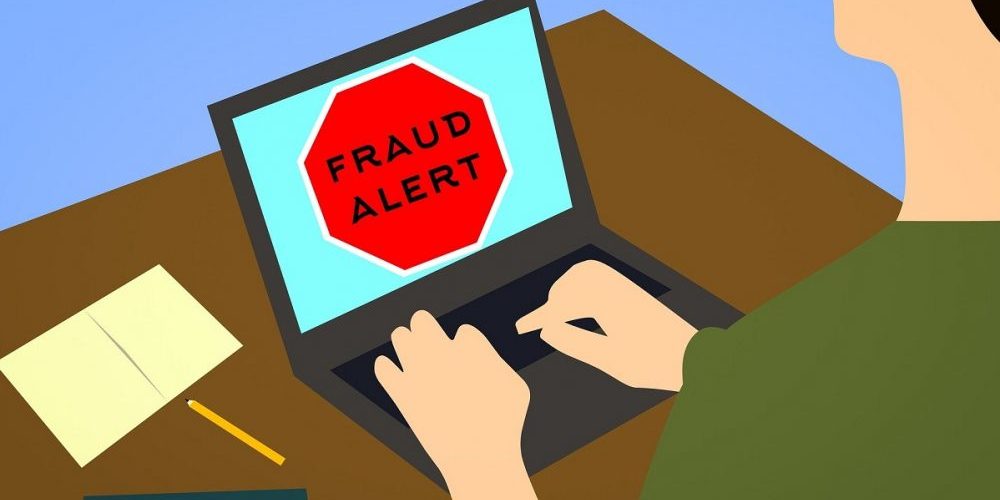Fraudsters are using the Covid-19 crisis to trick us into handing over our hard-earned cash or breaking into our private worlds. Playing on our vulnerability and making the most of our weakness. Here’s a few to watch out for…
Like many of us right now, Sharon, 49, a Sussex-based mother of one, is anxious about her loved ones. Sharon’s own mum is currently in hospital being treated for sepsis and other health complications, so having to comb through her finances was something Sharon could have done without. But one day she noticed her current account balance was less than it should have been.
When Sharon checked, she saw a string of Google Pay charges she hadn’t authorised. With purchase approvals already activated, anything bought by her 10-year-old son needs her say-so. And her own phone uses fingerprint ID; in fact she’d used the service without a problem for a year.
But 45 payments had been made over the course of 10 days starting on 26th March; just two days after the country went into lockdown. And she hadn’t received any approval requests for these amounts, which reached £80 a time.
Fixing the Google Pay problem
After deleting Google Pay, Sharon submitted a claim for fraudulent activity through its website. However it was rejected, and she can’t find any way to take her case further. Sharon remains out of pocket to the tune of £1k.
‘With everything else happening at the moment, I didn’t feel I had the time and energy to pursue this and decided to chalk it up to experience’ says a disheartened Sharon, who suspects her account was hacked. Disappointed that neither Google Pay nor her bank flagged up the suspicious activity Sharon now checks her bank account daily, and has cancelled Google Pay altogether feeling she ‘could never trust it again’.
…she can’t find any way to take her case further. Sharon remains out of pocket to the tune of £1k
And Sharon is not alone. Stats from Action Fraud, the UK’s national fraud and cyber reporting centre, show that 1,467 victims have lost a combined total of £2,996,252 to coronavirus-related scams. Fraudsters are using virus-themed cons, targeting us at a time when our worries and isolation make us more vulnerable.
The scams often tap into current anxieties, from breaking lockdown rules and needing protective equipment to claiming benefits and coping with money woes. And while the theme of the con may have changed, the aim is the same, to gain access to your personal information and/or take your money.
The Corona crims use everything from emails, text, and WhatsApp messages to phone calls and even doorstep visits to target victims. You may be fooled into opening a malicious attachment, visiting a fake website, donating to a bogus charitable cause or paying for goods that never arrive.
Scams to watch for include:
Pension cons
A record number of UK adults will reach ‘pension freedom’ age this year. While at the same time many have seen their investment value drop or need cash to cope with Corona financial pressures. To exploit this and access savings, scammers may encourage victims to switch a poor-performing pension to a high-risk option that could earn them a buck but leave their target less well off in the long run. They may also steal money by tricking an investor into transferring a lump sump into a bogus account.
Since 2019 it’s been illegal to make unsolicited contact with people about their pension. Any cold approach is suspicious. You must think carefully about short-term decisions that can have long-term implications. This includes reaching your tax allowance (25% of your private pension wealth is usually tax free, but the rest will be taxed like other income). And the impact on your annual pension allowance.
Fake goods
Another way scammers are exploiting Covid-19 is by selling items that have become desirable during the lockdown, particularly online. Unfortunately after you’ve handed over the money, the items fail to materialise or are not what they seem. This includes goods such as facemasks and hand sanitizer, and dodgy virus testing kits or vaccines.
The trend even extends to puppies and kittens. Animal lovers looking for lockdown pets have been defrauded of nearly £300,000 in the space of two months. Often after responding to online ads and sending a deposit via bank transfer. In most cases the animal didn’t even exist.
Phishing emails and fake websites
It’s incredibly easy for cyber criminals to make a clone website that looks just like the real thing. Scammers are exploiting the need for services that we’re using as we spend more time at home. A common con is to send out an email pretending to be from services such as Netflix, BT or a mobile phone network provider, asking customers to update their payment details. The criminal uses the fake website to capture credit card and banking details.
Similar scams may offer links to claim benefits, pay a fine from the government, the tax office, or TV Licensing. Or might ask for donations to charitable bodies such as the World Health Organisation. Again, these are all ploys to get you to disclose sensitive financial information. Both the Department of Education and the HMRC have officially announced that they do not text, email or phone to ask for bank details, PIN or passwords. Bona fide businesses never do.
Beat the cheats
Think carefully before you respond to any unsolicited requests for money or personal information. This applies to anything you receive through the post, email or another digital platform, via telephone and even at your own front door (the NHS has confirmed they don’t go door-to-door).
Ask yourself if you know and trust this person, and if you can, use a secure payment method such as a credit card (not a bank transfer). If you have doubts about an email or a link you have been sent, don’t open it, instead use a new tab on your web browser and log into your account from there.
Don’t let the scammers exploit you!







Add comment